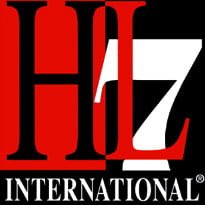HL7 standards set free
- 6 September 2012

Health Level Seven International has announced that it is going to make its standards for the electronic exchange of health information free from 2013.
HL7 is a series of common standards and guidelines created by volunteers that enable computers to talk to other computers and share healthcare information.
At the moment, only members of HL7 International are able to access the standards and the organisation has annual membership fees for suppliers from US $1,260 to $19,635.
However, the standards and other select pieces of intellectual property will now be made available to the international healthcare community free of charge following a period of what HL7 describes as “careful analysis”, which is expected to take several months.
Malcolm Newbury, supplier co-chair of Integrating the Healthcare Enterprise, which promotes HL7 as one of the methods of improving the way computer systems share information, said that the fees associated with the standards have been “holding back innovation in healthcare.”
“I’m delighted as it’s been a kind of stink that has been happening around health informatics for over the past ten years.
"It’s going to benefit small developers and individuals as they don’t need to pay to join the club.
“This has completely removed all the barriers to open standards in healthcare and it’s good news for organisations such as IHE where everything is open because HL7 is a standard that is used everywhere in healthcare,” he explained.
Until now, HL7 members had to pay for access and the right to use the standards and this will remain the case until the new policy comes into effect in the first quarter of 2013.
The intellectual property rights are currently licensed and will continue to be as part of the new offering.
According to HL7, users will not be able to modify the standards, as it “will retain the copyright and will follow current processes to make any needed changes.”
Organisations and individuals that have paid for the standards previously will be not eligible for a refund as HL7 says there are “significant benefits” to membership beyond the intellectual property.
Charles Jaffe, chief executive officer of HL7, said the organisation chose to remove the membership fee requirement for the HL7 standards to realise its vision of making its “collaborative, consensus-driven standards” the best and most widely used in healthcare.
“By eliminating this barrier to implementation, we can come closer to realising our goal, in which healthcare IT can reduce costs and improve the quality of care.
“Coupled with increasing government demand for standards that do not require a licensing fee, our decision to move toward free standards is perfectly aligned.
"To this end, we have already received enthusiastic support for this decision from key healthcare stakeholders."
Professor of Medicine at Harvard Medical School and chief information officer of the Beth Israel Deaconess Medical Center, John Halamka, said the announcement is the “most significant standards development in the past decade.”
“It ensures that every stakeholder will have ready access to the content standards they need for meaningful use,” he said.




